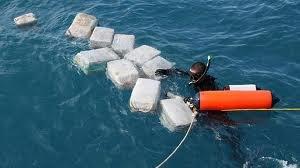Back in Cali I met with several associates who wanted to “jump-on-the-ban-wagon”—in this case, cargo ships—with the condition that they give me 30% of the merchandise they’d merge with mine. Since it would be a new route, I also demanded that we smuggle only a small quantity first.
We decided to go with only 150 kilos, which 45 of that was my cut. I also told them that they would have to sell their own “stuff.” I didn’t want to take any further chances or be accountable for anyone else’s product in case anything happened afterwards. I had my Italian friends and also a motorcycle gang that would take care of my “bricks” once it arrived and were ready to be distributed.
In a matter of days I headed back to Panama to find several hundred kilos waiting for me. It had just arrived from Buenaventura, a port on the Pacific Coast of Colombia. Since it is harder to take the cocaine direct from this country to other parts of the world, “traffickers” prefer to send it to neighboring countries where legal transportation would then haul it internationally.
In fact, it became customary for many boats loaded with an abundance amount of drugs, to travel through the Pacific Ocean and the Caribbean into Panama and all the way to Mexico. From there, the merchandise would make its way south to Ecuador, Argentina, Venezuela and even Brazil disguised as legal goods from legit companies to evade American and European Customs. Reputable companies that through the years worked arduously to gain notoriety and to monopolize their markets, fell prey to this criminal activity. Employees, without their owners knowing it, would act as “smugglers” using company connections at airports and ports to “push” the drugs across.
I remember the times when I used to do the same thing. I would hide my cargo, usually 25 kilos at a time, in boxes of flowers that would be exported from Colombia to nations across the globe.
If we were caught—obviously, my name never exposed or in vain—an investigation would ensue but this wouldn’t stop the mission from getting accomplished. We would simply use other routes or acquire the facilitation of other sources. Relying on personnel from airports and even officials who worked closely with the D.E.A., making them think that they were loyal when in truth they weren’t, was all part of the “game.”
We would never though, in the face of adversity, forfeit or compromise our bottom dollar. That was never to be jeopardized.
Ricky finally concealed the containers ensuring that the seals were exactly the way they needed to be, and in a day, we transported them onto the boat that would take them into Canada.
My job was done for the time being.
I decided it would be good to take advantage of the lapse in time, and see my kids in Mexico. I boarded a plane and thought about the joys of fatherhood, of how wonderful it would be if only for a moment, to forget my double life as a “narco-trafficker.”